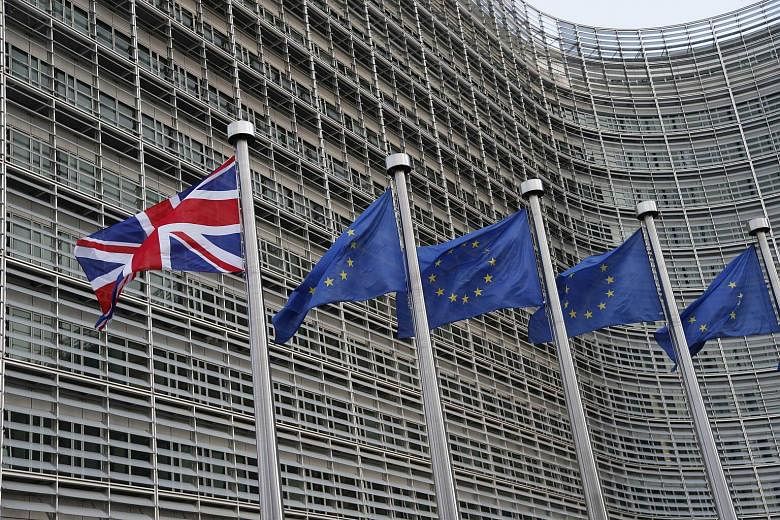LONDON • The European Union offered "unqualified solidarity" with Britain yesterday over a nerve agent attack blamed on Russia, as international weapons experts visited to take a sample of the chemical for testing.
In a joint statement, EU foreign ministers said they took "extremely seriously" Britain's claim that Moscow was behind the attack on a former Russian double agent in the English city of Salisbury.
"The EU expresses its unqualified solidarity with the UK and its support, including for the UK's efforts to bring those responsible for this crime to justice," they were quoted as saying by Agence France-Presse. The affair has plunged relations between London and Moscow into crisis.
In his first direct comments on the incident, Russian President Vladimir Putin rejected claims that Moscow was responsible.
"It's complete drivel, rubbish, nonsense that somebody in Russia would allow themselves to do such a thing ahead of elections and the World Cup," he told supporters on Sunday after winning a fourth term as president. "We have destroyed all chemical weapons," he said, adding that Russia was ready to take part in the investigation.
His spokesman Dmitry Peskov yesterday warned Britain to prove Russia's involvement or apologise.
"Sooner or later, these unsubstantiated allegations will have to be answered for - either backed up with the appropriate evidence or apologised for," he said.
Mr Sergei Skripal, a former Russian officer who sold secrets to Britain and moved there in a 2010 spy swop, remains in critical condition, along with his daughter Yulia, after they were found unconscious on a park bench on March 4.
Investigators from the international Organisation for the Prohibition of Chemical Weapons (OPCW) arrived in Britain yesterday to collect samples of the nerve agent used. They were expected to meet officials from the Defence Science and Technology Laboratory at Porton Down, where the chemical was identified as the Soviet-designed Novichok.
The samples collected by OPCW will be sent to international laboratories for testing, with results expected to take at least two weeks, according to British officials.
In a joint statement last week, the leaders of the United States, Germany and France backed Britain's analysis that the Russian state was responsible for what British police suspect was the attempted murder of Mr Skripal.
It is considered to be the first offensive use of a nerve agent on European soil since World War II.
Arriving in Brussels for talks with EU allies yesterday, British Foreign Secretary Boris Johnson stepped up London's criticism of Moscow, calling Russian denials of responsibility "increasingly absurd".
On Sunday, he accused Moscow of stockpiling the nerve agent, in violation of the international Chemical Weapons Convention.
Britain last week announced the expulsion of 23 Russian diplomats, prompting a tit-for-tat response from Moscow.
Britain also announced a boycott by members of the royal family and ministers of this summer's World Cup football tournament in Russia.
Former Soviet Union leader Mikhail Gorbachev, 87, said the poisoning attack was "horrible and disgusting". He told British channel ITV after voting in the Russian election on Sunday that "time will tell" who was behind the plot.

